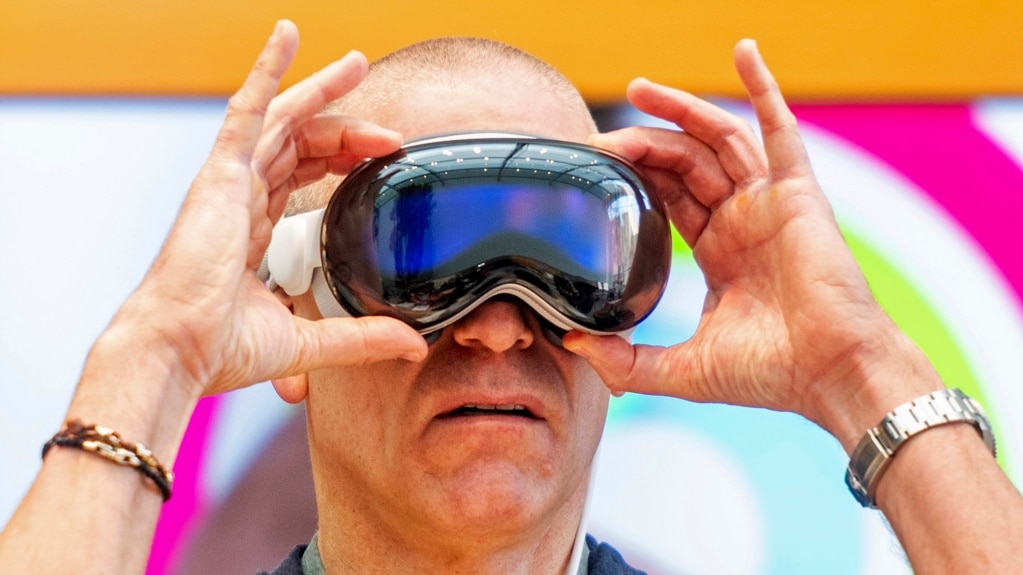Technology company Apple’s new computing device, the Vision Pro headset, became available in stores last week.
The device uses augmented reality technology which has been available for years. But Apple calls the technology “spatial computing.” The device is worn on the head over the eyes.
Apple hopes the Vision Pro will be as popular as the iPhone, Apple’s cellphone that came out in 2007.
“We can’t wait for people to experience the magic,” Apple chief Tim Cook said while discussing the Vision Pro.
The Vision Pro will also be among Apple’s most costly products at $3,500. Many researchers say the high cost means the company might sell 1 million or fewer of the devices during its first year.
But even the iPhone was not extremely successful in its first year on the market. Apple only sold about 4 million iPhones back then. Now, the company sells more than 200 million of them each year.
If the Vision Pro succeeds, the term “spatial computing” might become popular.
What is spatial computing?
“Spatial computing” describes how the physical world and the virtual world of computers can work together.
Augmented reality (AR) and artificial intelligence (AI) are two areas of computing that help make spatial computing happen, said Cathy Hackl. She runs a new company that makes programs for the Vision Pro.
Hackl said, “Spatial computing will enable devices to understand the world in ways they never have been able to do before.” She added that it is going to change the way humans and computers work together.
Apple says more than 600 newly designed programs, or apps, will be available to use on the headset right away. Apps will include television networks and video services although Netflix and Google’s YouTube will not be available. Other apps will be for video games and educational services. Zoom and other companies that provide online meeting tools have built apps for the Vision Pro.
Vision Pro may worsen screen addiction that has only grown since the iPhone was released. It also might separate people from the real world and make them dependent on the technology.
Other technology companies are also working on spatial computing products. Google has been working on a video meeting product called Project Starline. It would make two people sitting in different cities feel like they are in the same room. But Starline has not been widely released. And Meta has sold the Quest headset for years. It could be considered a spatial computing device, but the company does not market it in that way.
The Vision Pro comes equipped with high-resolution screens that can play back three-dimensional video recordings of events and make it seem as though the event is happening again. Apple’s high-priced iPhone models released in September can record what it calls “spatial video.”
Apple’s headset also reacts to a user’s hand and eye movements in an attempt to make the device feel like it is part of the body. While wearing the device, users will be able to use their hands to move around and open different virtual computer screens.
Spatial computing “is a technology that’s starting to adapt to the user instead of requiring the user adapting to the technology,” Hackl said. “It’s all supposed to be very natural.”
However, it remains to be seen how natural it is to wear a headset while having dinner with another person instead of just looking at your phone from time to time.
I’m Gregory Stachel.

